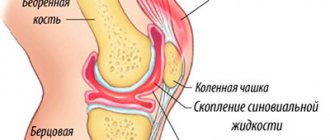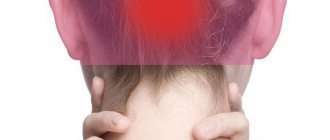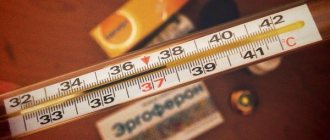What is stress?
Stress is a tense state of the body that appears as a defensive reaction to the influence of various unfavorable factors. Many people, being stressed every day, do not even understand that this is an abnormal phenomenon that needs to be gotten rid of. Stress awaits a person everywhere: at home, at work, on public transport. When stressful situations are irregular, there is nothing to worry about. But when the state of stress lasts a long time and occurs frequently, it is called distress. Against this background, serious illnesses may develop.
Causes of stress
Stress occurs in a person for various reasons. The main factors provoking an unstable state include two main groups of relationships: personal and work. Operating factors include:
- Excessive or insufficient load.
- Poor relationships with colleagues.
- Harsh physical working conditions.
- There is no mutual understanding with management.
- Simultaneous execution of several tasks.
Personal factors include: problems and frequent quarrels in the family, poor nutrition, sleep disturbances, and problems with self-esteem.
Symptoms of psycho-emotional stress
Psycho-emotional stress is characterized by disruption of the functioning of internal organs, as well as mental disorders. A person often begins to have headaches, stomach ache, and blood pressure rises. Weakness appears and sleep is disturbed. If the main symptoms occur, you need to take immediate action and not aggravate the condition.
Physiological signs
When a person gets into a state of stress, he begins to experience constant anxiety and nervousness. An unstable mental state affects the functioning of the entire body, causing the following negative physiological changes:
- Fatigue and weakness.
- Indigestion accompanied by constipation or diarrhea.
- Tremor of the limbs.
- Hair loss.
- Development of skin diseases.
- Heart pain, tachycardia.
- Losing or gaining weight for no apparent reason.
- Headache.
- Insomnia.
People who are in a state of initial or chronic stress have decreased libido and are often plagued by panic attacks.
Psychological signs
High susceptibility to stress is associated with an unstable mental state of a person. He becomes irritable and indecisive. Often feels anxious, suspicious, and panicky. A person under stress cannot concentrate and his memory deteriorates. The mood is most often bad, you don’t like your work, you don’t like your colleagues. Against the backdrop of poor psychological well-being, self-esteem decreases.
Behavioral symptoms
People with mental and physiological disorders begin to experience negative changes in behavior. The person becomes restless and withdrawn, he has no appetite. Loss of appetite often causes weight loss. Behavioral signs also include:
- Speech impairment.
- Loss of interest in one's appearance.
- Incorrect time management.
- Constant rush for no reason.
- Problems in the family or at work are not solved, but only worsen.
High stress levels in the body provoke the development of alcoholism and drug addiction. A person still tries to cope with problems, relax and forget.
Why is stress treatment necessary?
Long-term stressful situations can cause lasting changes in people with low levels of stress tolerance. The nervous system is under constant pressure and can remain constantly active, which stimulates the continued production of additional portions of stress hormones over a long period. This depletes the body's reserves, causing a person to feel overworked and weak. The body's immune system is weakened, and other problems arise associated with the depletion of various biological reserves.
Stress often causes the formation of various mental disorders.
The most common cases of development of such disorders are:
- Depression
- Anxiety states
- Psychosomatic disorders
- Neuroses
- Chronic fatigue syndrome
- Other pathological mental states.
Despite the fact that stress reactions have important biologically justified changes in the body, overload stress is completely different. Too much stress is not good for the entire human body. For example, a small stress test - short-term stress leads to motivation to study, and a person learns the material more easily. But prolonged stress throughout the probationary period can create significant difficulty concentrating on the material you need to learn.
Stress treatment is necessary
Pressure that is too intense or too long can cause people to feel stressed overload. Here are some of the basic situations that can overwhelm the body's ability
cope with stress independently if it continues for a long time:
- intimidation or direct exposure to violence or physical harm
- conflicts in the family, difficult emotions that may be accompanied by grief
- difficulties associated with learning disabilities
- lack of time for proper rest
Some stressful situations can be extreme and require special attention and treatment for stress and its complications. For example, post-traumatic stress disorder is a very severe reaction that can develop in people who have experienced an extremely traumatic event, such as a serious car accident, natural disaster, terrorist attack, rape, etc.
Some people may have neurodevelopmental characteristics that may cause them to overreact to stress, even when faced with minor challenges. If a person often feels tense, upset, anxious, or experiences stress, this may be a sign of anxiety and a reason to seek help from a professional counselor to overcome it.
Stages of stress development
The effect of stress on the body can be considered as a process that consists of three successive stages of development. Stress should not be confused with nervous tension. The second state is short-term in nature and refers to mental unrest. There are no hormonal surges or changes in the functioning of internal organs due to nervous tension.
First stage: anxiety
The first phase of anxiety occurs as the body's reaction to stimuli. A person experiences a burst of energy, his blood pressure rises, and he begins to worry. The body begins to produce cortisol and adrenaline - stress hormones. In such a state, it is difficult to calm down and pull yourself together.
Second stage: resistance
At this stage, the production of stress hormones decreases somewhat, and the body functions normally, but is on high alert. At this stage, the person calms down a little, and the psychological manifestations of stress disappear.
Third stage: exhaustion
At the third stage, somatic diseases begin to develop. Immunity decreases, against the background of this, protective functions weaken. If the body is in a state of stress for a long time, then disturbances in the functioning of the immune, cardiovascular system, digestion and other organs inevitably develop.
- Anonymously
- For free
- Around the clock
Leave a request for a free consultation with a specialist
We will contact you as soon as possible!
By clicking on the button, you consent to the processing of your personal data
What signs indicate chronic stress?
Signs of Chronic Stress
Symptoms of stress fall into four categories:
Physiological symptoms
They manifest themselves in increased blood pressure, chest pain, migraines, insomnia, decreased appetite or, conversely, its excessive increase. The person feels apathy, fatigue and weakness. He loses interest in the opposite sex.
Social symptoms
They are expressed in increased conflict, sometimes out of nowhere. Often the “victims” become close and dear people, upon whom accumulated tension and anger fall.
Emotional symptoms
They manifest themselves in aggression or tearfulness, irritability. A person experiences sudden outbursts of anger, and his or her mood may change dramatically.
Cognitive signs
This is a decrease in concentration, memory impairment. At the same time, the criticality of thinking and the perception of new information changes. A person copes worse with problems and tasks, loses professional skills.
Stress has a destructive effect on the entire body, not just on the emotional state and cognitive functions. Our entire body is permeated with nerve endings. If it begins to affect the nervous system, chaotic signals can go throughout the body, all depending on what is actually happening in the body. For example, your shoulder may hurt even though there is no damage to it.
Nerve endings are our only way of communicating with the world. Thanks to them, we feel touch, the temperature of objects, even sound and image enter our brain through nerve fibers
That is why any disorder of the nervous system affects our communication with the outside world. Our body needs stress, but its excess must be kept under control.
Prevention of stress conditions
To prevent acute stress from causing harm to the body, its occurrence and development should be prevented. Preventative measures for stress may include the following:
- Systematic physical exercises. To develop the respiratory system, it is recommended to attend dancing, swimming, and running in the morning.
- Balanced diet. It is necessary to balance the diet, introduce foods rich in vitamins and microelements into the menu.
- Follow the correct daily routine, close to the natural biorhythms of a person. Try to go to bed no later than midnight.
- Meditation. This will help the body restore lost strength and energy. You should devote an hour a day to meditation. Pleasant music will help you recover.
Medicines should only be prescribed by a doctor; self-medication is not recommended.
Stress is a nonspecific (abnormal) state or reaction of the body to various unfavorable factors (stressors) affecting it. Small stressful situations are necessary for a person, because... they play an important role in further favorable changes in the life of the person himself. This is due to the release of adrenaline into a person’s blood during a stressful situation, as well as other biochemical reactions that help a person solve a particular problem. In addition to its positive effects, stress can also contribute to negative consequences. When a person is constantly exposed to stressful situations, his body intensively wastes its strength (energy), which leads to its rapid exhaustion. Since all organs are in a tense state, they are more susceptible to secondary adverse factors, for example, diseases. Thus, scientists have established two main types of stress - eustress (positive stress) and distress (negative stress) .
Causes of stress
There are a great many causes of stress, because... Each person has his own individual body, psyche, way of life, therefore, the same factor may not affect one person at all, or have an insignificant effect, while another person literally gets sick, for example, a conflict with another person. The most popular causes and/or stress factors:
- a conflict situation with another person - at work, at home, with friends or even with strangers, a quarrel;
- dissatisfaction with one’s appearance, the people around him, success at work, self-realization in the world, the environment (home, work), standard of living;
- low cost of living, lack of money, debts;
- long-term absence of vacation and proper rest from everyday activities and everyday life;
- routine life with the absence or small amount of positive emotions and changes;
- long-term chronic diseases, especially those affecting appearance, as well as illnesses of relatives;
- overweight;
- death of a relative or simply a close or acquaintance;
- lack of vitamins and microelements in the body;
- watching emotional films, or vice versa, horror films;
- problems in sexual life;
- frequent fears, especially of fatal diseases (cancer), the opinions of others, old age, a small pension;
- loneliness;
- excessive physical activity, or unfavorable environmental conditions (cold, heat, rainy weather, high or low atmospheric pressure);
- a sudden change in the environment - moving to another place of residence, changing jobs;
- hard music;
- other reasons or situations that can hook or irritate a person.
Symptoms of stress
Among the most popular reactions of the body to stress are:
- causeless and frequent attacks of irritability, anger, dissatisfaction with the people around a person, the situation, the world;
- lethargy, weakness, depression, passive attitude and unwillingness to communicate with people, even with family and friends, fatigue, reluctance to do anything;
- insomnia, restless sleep;
- inability to relax, constant tension in the nervous system and physical body;
- attacks of fear, panic;
- poor concentration, lethargy, difficulty understanding ordinary things, decreased intellectual capabilities, memory problems, stuttering;
- distrust of oneself and others, fussiness;
- frequent desire to cry and sobbing, melancholy, self-pity;
- lack of desire to eat food, or, conversely, excessive desire to eat;
- nervous tics, non-specific desires for the patient to bite one’s nails or bite one’s lips;
- increased sweating, increased excitability, digestive system disorders (diarrhea, nausea, vomiting), itching, headache, dizziness, rapid heartbeat, chest discomfort, breathing problems, feelings of suffocation, sudden increase in body temperature, chills, numbness or tingling in the limbs;
- - increased interest in alcohol, drugs, smoking, computer games and other things that previously did not interest the person.
Phases of stress
The development of stress occurs in three phases:
- Mobilization. The body reacts to a stressor with anxiety and mobilizes its defenses and resources to withstand the stress factor.
- Confrontation. The body resists a stressful situation, the person actively seeks a way out of it.
- Exhaustion. With a long duration of influence of a stress factor on a person, the body begins to deplete and becomes vulnerable to secondary threats (various diseases).
Principles of stress treatment
Treatment of stress includes the following points: removal of the stressor (stress factor); physiological procedures; taking sedatives; psychological correction.
Stress Prevention
To minimize the development of stress, you should pay attention to the following recommendations:
- to live an active lifestyle;
- eat food enriched with vitamins;
- try to find a job you like;
- get enough sleep;
- give up alcoholic beverages and do not use drugs;
- spend more time outdoors, relax in nature;
- limit yourself in caffeine consumption (coffee, strong black tea);
- do not watch or listen to things that cause trouble (movies, music, news);
- monitor your child - what he reads and watches, limit him from information of a violent, otherworldly and occult nature;
- share your experiences with trusted friends or relatives;
It is important to remember: if you feel that it is impossible to overcome stressful situations, you should seek advice from a specialist psychologist, or a neurologist or psychotherapist.
Types of stress
Psychologists differentiate stress by the duration of symptoms and the cause of their occurrence. Various life situations can influence the development of stress. Only people with a healthy psyche, as well as those who lead a healthy lifestyle, can avoid it.
Chronic emotional stress
This type of stress occurs when you spend a long time in a negative atmosphere. These may be problems in the family that no one can solve. Over time, tension develops into stress, which leads to the development of mental and physiological abnormalities. Experienced psychologists will help you cope with chronic stress.
Psycho-emotional
The main sign of psycho-emotional stress is the presence of emotion in the stress reaction or the inclusion of motivation in it that causes the emotion. A person’s emotional mood in relation to a stimulus causes mental stress.
Destructive
This type manifests itself in two ways. A person may fall into a stupor, become lethargic and apathetic. He is not interested in life and all its joys. Or, on the contrary, an impulsive reaction may occur. The person becomes overly active and fussy. He takes on many things and does not complete any of them.
Short-term
The body's response to a brief but significant impact of a stressful source can be both short-term and long-term. It depends on the severity of the situation and the internal state of the person. People with unstable psyches experience shocks for a long time.
Interior
A stressful state affects all functions of the body, including the functioning of internal organs. Against the background of psychological stress, problems with digestion, breathing, and heart function begin. The help of a psychologist will help not only get rid of psychological problems, but also normalize the functioning of internal systems.
Positive
A slight nervous shock allows you to mobilize internal resources and find a way out of a difficult situation. Usually this is a short-term single stress that quickly passes. A positive shake-up does not bring any consequences for the body.
Nervous
A strong shock or negative situation affects the state of the nervous system. At the same time, the human body begins to produce adrenaline, which further provokes the development of stress. In cases of nervous stress, people are often prescribed antidepressants that improve the condition.
Informational
This type of stress occurs when there is information overload. It is usually experienced by people who do the work and bear great responsibility for the result obtained. When a person does not have time to make the right decision, a stressful situation arises.
Consequences of constant stress
- Heart attacks . Stress leads to increased blood pressure. Every time you get stressed, your blood pressure goes up. In addition to this, your blood flow also increases significantly, which leads to the release of triglycerides and cholesterol into the blood. People who smoke and are obese are also at higher risk of serious heart problems.
- Choking . Children who are regularly stressed are at higher risk of developing respiratory diseases such as asthma. Studies in children have shown that stress can significantly worsen asthma. There is also evidence to suggest that chronic stress in parents can negatively impact the health of their children.
- Gastritis . Some people with chronic stress suffer from gastritis, which further complicates their condition. Stress-induced gastritis, also known as stress-related erosive syndrome, can cause superficial hemorrhages and mucosal erosion in patients who are seriously ill and in people exposed to stress.
Types of responses to stress
All people react to stress differently. Some become despondent and apathetic. Others begin to show aggression. If measures are not taken in time, the state of stress can turn into prolonged depression, which can only be cured with the help of specialists.
Defensive reaction
A person under stress is always in tension. The most common defensive reaction is aggression or irritability. A person cannot show patience and tact, and breaks down over trifles.
Depression
A mental disorder that develops from various causes requires qualified treatment. Depression often affects people who cannot solve their problems for a very long time. Alcoholics and drug addicts also suffer from depression.
It is better to recognize stress at the very beginning
otherwise, its level inside can grow to such an extent that neither work nor rest will simply become impossible. And this state will very quickly lead you to the idea that you seem to be terminally ill.
Here are the symptoms of stress by which it can be recognized at the very beginning.
Cognitive symptoms:
- Inability to focus and concentrate;
- Perception of predominantly negative aspects of life;
- Anxiety or racing thoughts;
- Difficulty in making decisions;
- Difficulties in mastering new information;
- Constant anxiety;
- Nightmares;
- Constant feeling of guilt;
- Inability to plan your life;
- Forgetfulness, disorganization
Emotional symptoms:
- Depression or feeling of lack of happiness;
- Low self-esteem: “I am lonely, insignificant”;
- Feeling of overload, loss of control over your life;
- Frequent tears, thoughts of suicide as a possible rest;
- Dejection;
- Apathy;
- Irritability, short temper;
- Agitation, inability to relax
Physical (somatic) symptoms:
- Nervousness, “shaking”;
- Weakness, fatigue;
- Muscle twitching, tremors;
- Pain, muscle hypertonicity, spasms;
- Diarrhea or constipation;
- Nausea, dizziness;
- Chest pain, tachycardia, bradycardia;
- Frequent colds and other infections;
- Decreased libido, potency or ability to have sex;
- Frequent belching, flatulence;
- Unexplained attacks of “allergy”;
- Weight gain or loss without changes in diet;
- Ringing, buzzing, clicking in the ears;
- Cold or sweaty palms or feet;
- Dry mouth, difficulty swallowing;
- Clenching of the jaws, grinding of teeth;
- Hair loss
- Acne (pustules on the skin);
- Skin rash, itching;
- Numbness of body parts;
- Hot/cold flashes;
- Sweating; control
- Tingling in various parts of the body;
- Decrease in overall energy level;
- Headache;
- Insomnia;
- Heartburn;
- Panic attacks;
- Feeling nauseous;
- Frequent urination;
- Difficulty breathing
Behavioral symptoms:
- Change in appetite;
- Excessive or insufficient sleep;
- Social isolation, isolation;
- Aggressiveness, hostility;
- Acute reactions even to ordinary stimuli;
- Defensive behavior or suspiciousness;
- Obsessive or compulsive behavior;
- Nervous behavior (nail biting, restlessness, constant movement);
- Loss of the need to take care of one’s appearance and be punctual;
- Stuttering, rapid or mumbled speech;
- Procrastination, neglect of obligations, irresponsible behavior;
- Using alcohol, cigarettes, drugs to relax;
- Lying or constantly making excuses to explain shortcomings and failures in work;
- An increase in the number of minor accidents or accidents that occur to a person;
- Excessive gambling, impulsive and thoughtless purchases;
Just because you have one or two of the symptoms on this list doesn't mean you're stressed, but the list does make it clear what stress can do if it goes unrecognized.
How people react to stress
People react to stress in three different ways.
1. “Hit.” Reaction to stress in the form of excitement, readiness to fight, in the form of aggression in order to eliminate the source of stress.
2. "Run." Withdrawal, depression, withdrawal into oneself or one’s own world, dissociation as a reaction to stress.
3. “Double” answer. A person freezes in tension and has no way to express it. The ability to act is paralyzed, and inside the person is extremely tense.
How to cope with stress
1. The most important way is to avoid unnecessary stress. Why would you want to get into a fight on a social network or in a queue? Why fly on vacation to a distant country where, according to rumors, a change of power is taking place? Think twice when planning your actions and especially when you are driven by emotions.
2. Try to change the situation. Get advice, call for help, pick up a stick - whatever will change the situation in your favor.
3. If the situation cannot be changed, try to adapt to the stress factor. If the stressor is a person, look at the situation through his eyes and understand the reasons for his behavior. If stress is caused by too much workload, try to find additional resources to gain strength. In any case, to adapt to the stressor, it is better to talk about your situation to someone who knows how to listen. By talking through the situation again and again, you will be able to see what previously remained in the shadows. And maybe change your attitude towards stressful situations. A good resource is a way out of the situation with a complete change of environment, activity, and social circle. If there are no opportunities for such a way out, try to do something crazy right in your situation, something that you have never done before. Often this allows you to obtain a new resource for adaptation.
4. Accept the things you cannot change. Does your husband drink and is not going to quit, despite all your joint conversations and plans about this? Look at this with open eyes and tell yourself: “Stop. This will never happen." “Yes, I’m not handsome, but that’s no reason to be unhappy.” “Yes, I don’t have (someone or something) now, and most likely never will. But there is my life, friends, work, etc.” “This world is unfair to me. But he is just as unfair to many. However, he gave me (such and such).” These are examples of accepting statements that, despite all the painful processes of awareness and acceptance of the situation, have extraordinary healing power, releasing a large amount of resources and restoring the boundaries of the individual for a further full life.
There are several other ways to cope with stress that may seem minor at first glance, but are actually quite effective:
- Laughter. When your brain can no longer think, simply take your mind off the situation by watching some good comedy.
- Massage. In a stressful situation, the body is under tension and massaging the back or feet helps to cope with this tension.
- Be alone for a while. Often the best way is to collect your thoughts and look at the situation in a new way. Take a shower, go for a walk, sit in a cafe, take a nap, or just work alone. Hand the children over to your husband (wife, grandmother, grandfather, nanny), and be alone for a few hours. This is a powerful resource for restoring internal balance.
- Do something useful for yourself. Often stress increases because you feel that the situation in your business, at home, or your illness is out of control. Sometimes, paradoxically, in such a situation, it can help to cook dinner, go to the laundry, clean up the house, or do a manicure, hair, or makeup.
So, the main thing you need to learn is don’t let stress take its course . Unrecognized stress reactions in the body over time lead to significant difficulties in life and at work, and later to somatic diseases.
Ways to get out of stress
You can get out of stress on your own, it is only important to find a suitable way. The most important thing is to bring bright colors into your life, improve your mood, and learn to think positively. Even in a negative situation, you can see the benefits if you want.
Healthy lifestyle
It is necessary to build the correct day and night routine. Meals should be complete and on time. Moderate physical activity, sports and healthy family relationships will only help overcome stress. Don't overwork yourself at work and at home.
Vitamins
Overcoming stress is possible for everyone. It is important that the body receives all the necessary vitamins and microelements. You can buy pharmaceutical complexes, and also eat fruits and vegetables rich in vitamins. In a healthy body, protective functions work perfectly. The psyche and internal systems are not so susceptible to stress.
Rest
Rational rest helps relieve stress and restore. You can’t work too hard, because psychological fatigue is added to physical fatigue. And this is already fraught with stress. During rest, you should not think about work, but while at work, you should not think about home. The ability to switch will help avoid stress.
Full sleep
Nothing restores the body better than healthy, full sleep. During sleep, the body produces hormones responsible for growth and restoration of functions. Therefore, you should try to go to bed before 23-00 in order to get enough sleep and wake up cheerful and in a good mood.
Hobbies
When a person does what he loves, he experiences joy and satisfaction. Any hobby may take time, but it has a beneficial effect on a person’s mental state. This helps to get rid of problems and forget all the bad things for a while. A rested brain will quickly tell you how to cope with negativity.
Physical exercise
Regular physical activity will help release excess adrenaline and help the body relax. Exercising in the fresh air will help normalize breathing and enrich internal organs with oxygen. A morning jog in nature will have a positive effect on your mood, and happiness hormones will begin to be produced.
Aromatherapy, dancing, music
The healing power of aromatic oils has been known since ancient times. They can be added to the bath, applied to the body, or used as an air freshener. When essential oils enter the body, they cause a surge of good mood and euphoria, and calm the nervous system. Dancing and pleasant, soothing music, such as classical, have the same effect on a person.
Fighting stress in a clinic in Moscow
When you can’t cope with stress on your own, you need to seek help from specialists. Our clinic has created all the conditions to combat psycho-emotional disorders. Each patient has an individual approach, treatment is carried out in several stages. For the greatest effectiveness, complex treatment is used, including drug therapy and psychological assistance.
Drug therapy
Reducing stress occurs with the help of high-quality and effective medicines. Thanks to effective medications, a person’s sleep is normalized, anxiety levels are reduced, and the functioning of internal systems is normalized. Clinic specialists prescribe medications individually to each patient, depending on the severity of the stressful condition, age and the presence of concomitant diseases.
Help from a psychologist
Prolonged experiences, anxiety and panic negatively affect the human psyche. Drug treatment alone is not enough to relieve the patient from stress. This requires the help of an experienced, qualified psychologist. The specialist will conduct a personal conversation and identify the reasons that led to the stressful situation. The support of a psychologist will help you cope with difficulties and problems without harm to the body.
- Service
- Service cost
- Narcologist at home
- from RUR 4,500 order a service
- Coding for alcoholism
- from RUB 5,000 order a service
- Vivitrol coding
- from RUR 26,000 order a service
- Naltrexone coding
- from RUB 35,000 order a service
- Esperal coding
- from RUB 15,000 order a service
- Coding Torpedo
- from RUB 5,500 order a service
- Double block
- from RUR 8,000 order a service
- Classic hypnosis
- from RUB 13,000 order a service
- Ericksonian hypnosis
- from RUR 8,000 order a service
- Tetlong for 3 months
- from RUB 10,500 order a service
- Coding Esperal gel
- from RUB 15,000 order a service
- Narcopsychotherapy session
- from RUB 5,000 order a service
- Doublet - express output and encoding
- from RUB 13,500 order a service
- Hospitalization
- from RUB 5,000 order a service
- Withdrawal from binge drinking in hospital
- from RUR 2,000/day order a service
- Rehabilitation from alcoholism with a guarantee
- from RUB 25,000/month. order a service
- Rehabilitation from drug addiction with a guarantee
- from RUB 25,000/month. order a service
Stress under control
What can you do to combat stress overload, or better yet, avoid it in the first place? The most useful method of dealing with stress is knowing how to cope with stress that can arise at any time. Stress management - skills work best when they are used regularly, and not just when there is increased stress. Knowing how to “de-stress” requires using this technique constantly, when everything is relatively calm, then these skills can help you get through difficult circumstances that arise.
Treating stress yourself
Here are some rules that can help keep stress under control:
- Go against what is planned. If you feel tired, consider cutting back on activities or choosing only those that are most important to you.
- Be realistic. Don't try to be perfect - no one can do everything. Expect realistic opportunities from others, and don't put too much pressure on others to avoid increasing your stress levels. If you need help with something, ask for it.
- It is necessary to ensure that you have a good and complete sleep at night. Having quality sleep helps keep your body and mind in top shape, which makes you better equipped to deal with any negative effects of stress and helps treat stress. Because the biological “sleep clock” shifts during adolescence, many teenagers choose to go to bed later and wake up later in the morning. But if you go to bed late and have to get up early (for school, for work), you cannot get all the hours of sleep your body requires that it needs.
- Learn to relax. The body's best natural antidote to stress is the relaxation response. Relaxation will help your body fight stress, which creates a feeling of well-being and calm. The benefits of relaxation in response to stress are that the body’s biochemical processes are activated aimed at replenishing spent resources, which can be activated simply by rest. You can help trigger the relaxation response by learning simple breathing exercises, and then use them when you find yourself in stressful situations. This will help you restore or not waste unnecessary body resources, and build your schedule for implementing activities. Relaxation should be soothing and enjoyable: reading a good book, pursuing a hobby, spending time with your pet, or simply taking a relaxing bath.
- Treat your body well. Experts agree that regular exercise helps people cope with stress. Excessive or forced exercise can, on the contrary, contribute to the development of stress; it is necessary, as with everything, to use moderation.
- It is necessary to eat right to help the body function at its best. It's easy when it becomes your daily habit. You cannot eat on the run or eat unhealthy food or fast food. Under stressful conditions, the body needs vitamins and minerals more than ever. Some people may turn to substance abuse as a way to relieve stress. Although alcohol or drugs may seem to help relieve stress temporarily. However, using psychoactive substances to cope with stress actually contributes to the development of even more stress, because the body's ability to return to normal is worn out.
- Analyze what you are thinking. Your perspective, attitude and thoughts influence how you see and present things. Is your cup half full or half empty? A healthy dose of optimism can help you come out of stressful circumstances better. Even if you are a bit of a pessimist in life, everyone can learn to think more optimistically and reap the benefits from it.
- Solve small problems. Learning to handle everyday tasks calmly can give you a sense of control. Developing the skills to calmly look at problems, find out, consider options, and take some action helps in developing skills to solve larger problems and is a path to resolution in stressful situations. Feeling able to calmly solve small problems builds the inner confidence to move on to calmly solving larger problems—and this can serve you well during times of stress.
- Build your stress tolerance Have you noticed that some people seem to quickly adapt to stressful circumstances and take all situations in stride? They are calm under any pressure and are able to solve problems as they arise. Researchers have identified qualities that make some people seem naturally resilient even when faced with high levels of stress. If you want to build your resilience, you need to work on developing these qualities.
- If you have problems fighting stress, you should not hesitate to ask for help from a competent psychotherapist.
The specialists of our clinic will always help you get out of the most difficult stressful situations and relieve the pathological consequences for the body, which very often arise during periods of prolonged stress. Treatment of post-stress disorders should be supervised by a competent doctor. Before treatment, it is necessary to conduct a thorough diagnosis.









